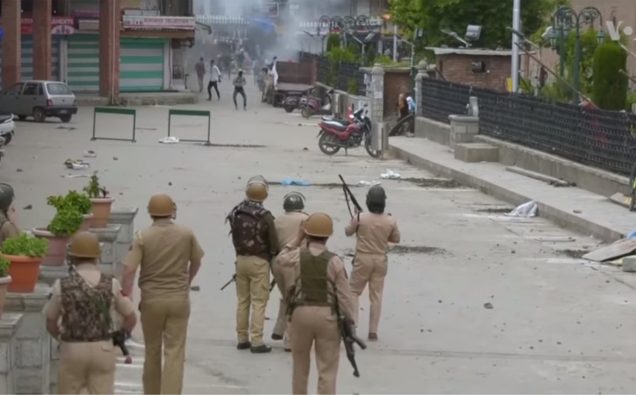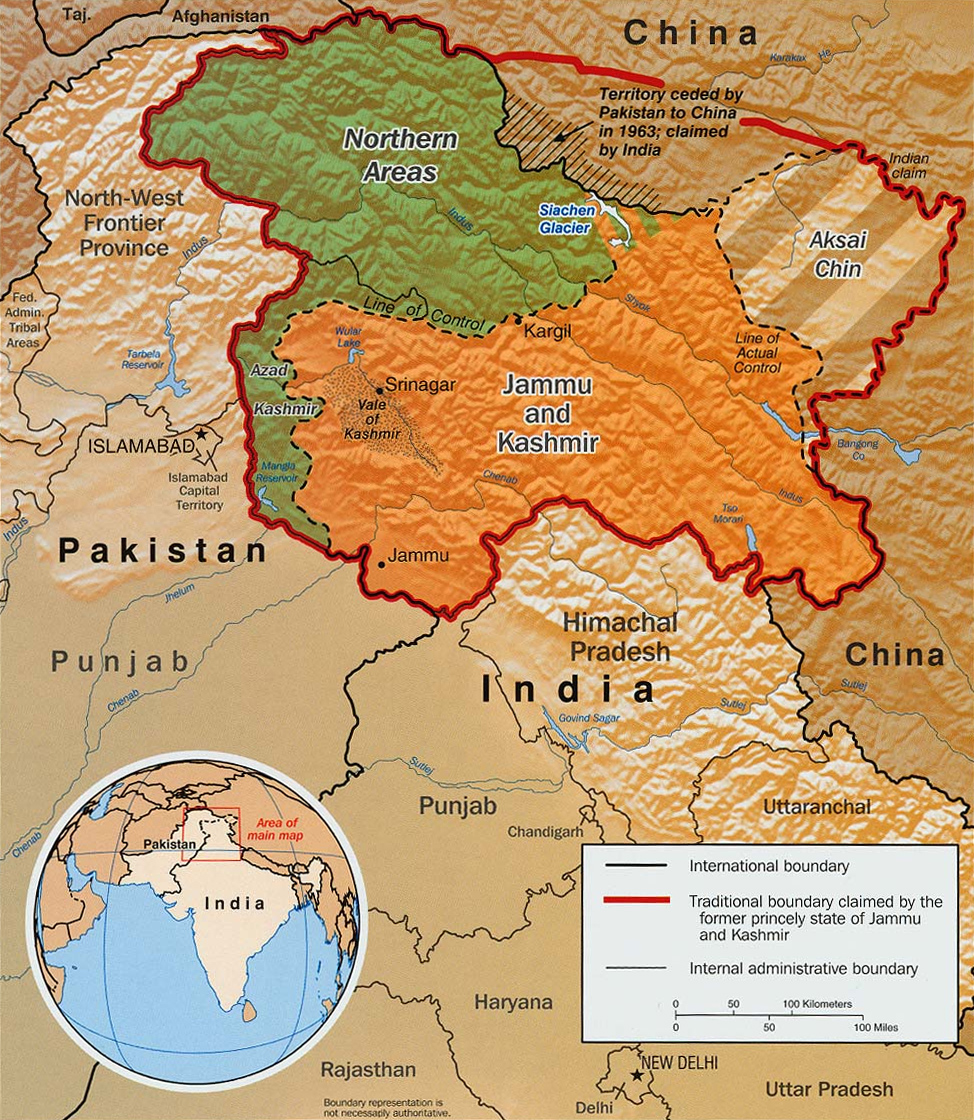
The United Nations says it stands by its June 14 human rights report on Kashmir that accuses Indian troops of using excessive and deadly force against civilian protesters and seeks an international investigation.
“I will still stand by it,” High Commissioner Zeid Ra’ad al-Hussein said at a farewell news conference at the U.N. headquarters in New York.
The release of the report shook New Delhi as the world body documented it’s undemocratic and unjustified repression against protesters that often air grievances against Indian excesses and occupation.
The UN last month also took note of the a campaign in the Indian media against the report as well as personal attacks on Hussein.
Zeid Hussein, who has been a forthright UN voice for human rights, leaves his Geneva-based post on Aug. 31, after serving a four-year term.

UN High Commissioner for Human Rights Zeid Ra’ad Al-Hussein. Credit: UNFEED
The report, which marks the first-ever U.N. documentation of rights violations on both sides of the Kashmir and focused mainly on serious violations in Indian occupied Kashmir from July 2016 to April 2018, has been welcomed by Islamabad.
“The report makes it clear the excessive use of force was of a gravity that demanded the attention of the international community,” Hussein said.
“If 6,000 people were struck by pellets in New Delhi or in Mumbai, it would be front-page news. Why is it that if you have that number in the (Kashmir) valley somehow then that is something that shouldn’t be occupying the attention of the international community,” High Commissioner Hussein posed a counter question.
The high commissioner pointed out UN human rights experts were not allowed to visit Kashmir to make an investigation, and for a absolutely clear picture without any inaccuracy, “we have continue to press for access in the region because then any discrepancies will be sorted out.”
“We are still waiting for the access to be given,” he said.
Zeid Hussein was also asked about his views whether Thursday’s damning New York Times report about the situation in Indian occupied Kashmir was inspired by the UN report.
“I don’t know if The New York Times piece was inspired by the report , but it basically dovetails what is in our report,” he responded about the piece which clearly reinforces the fact – known to many but which India ties to hide – that the movement in Indian occupied Kashmir is indigenous originating from New Delhi’s use of violence and denial of rights to the people.


















